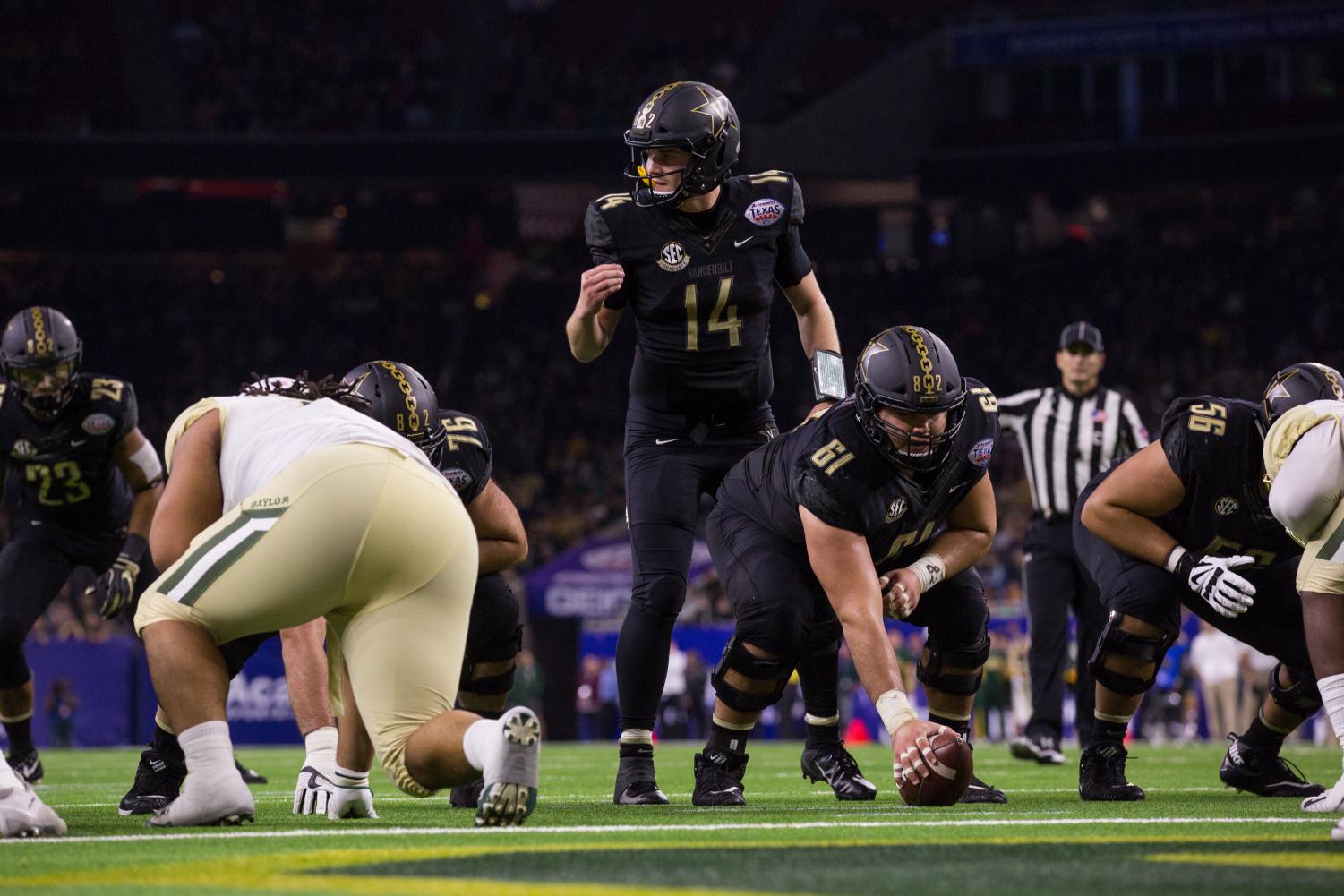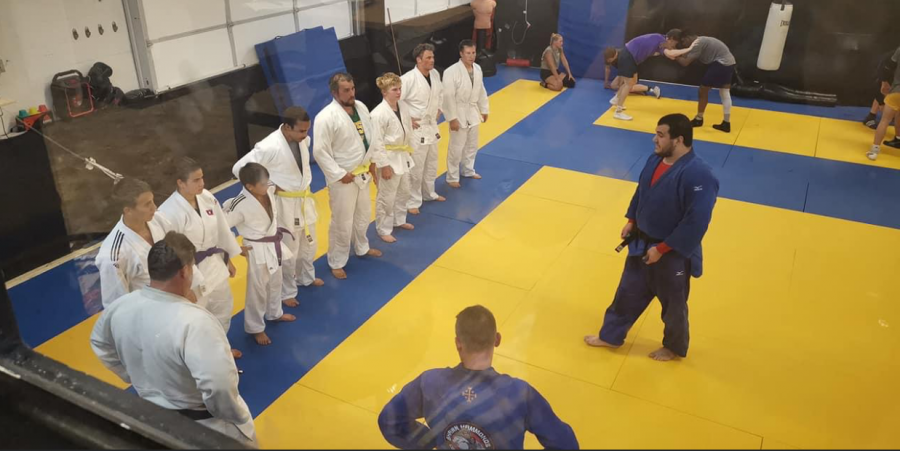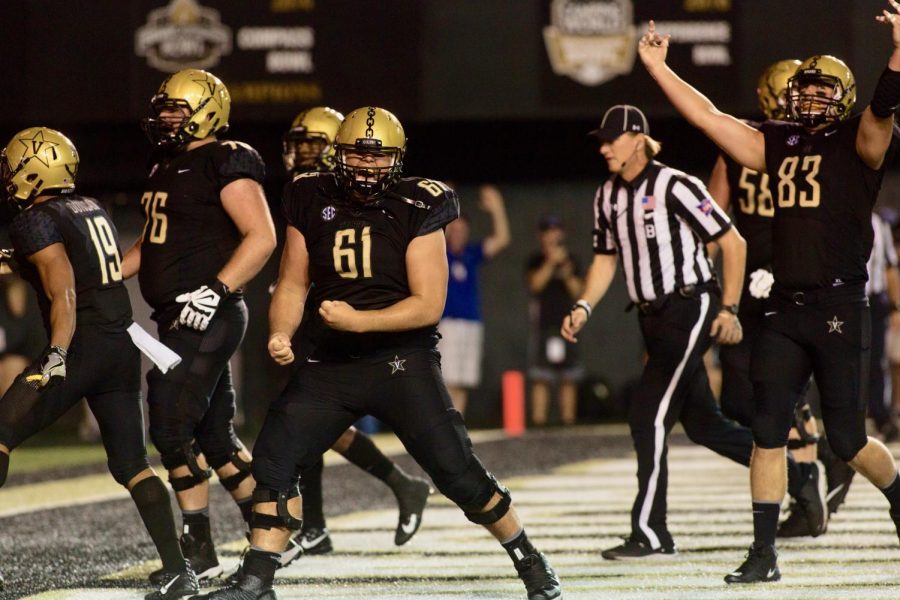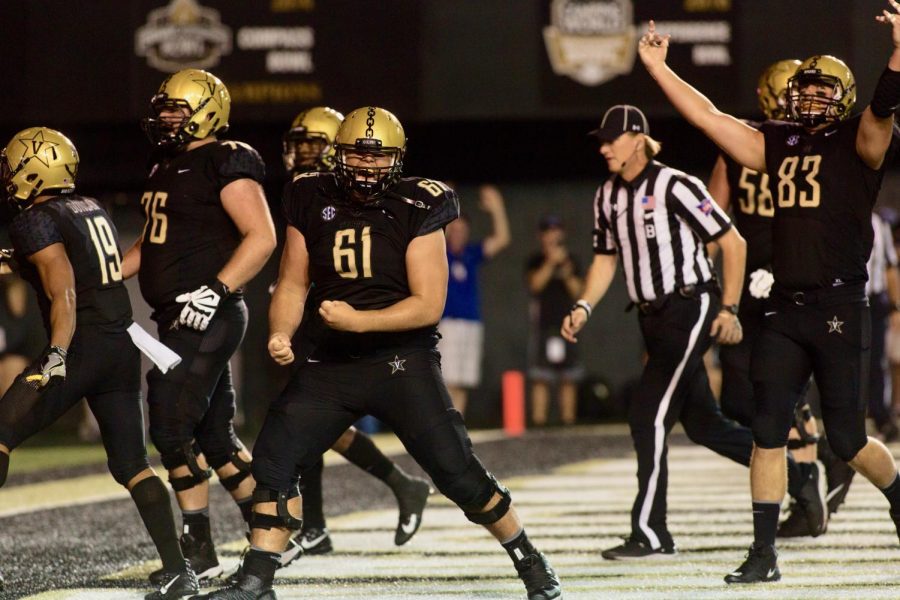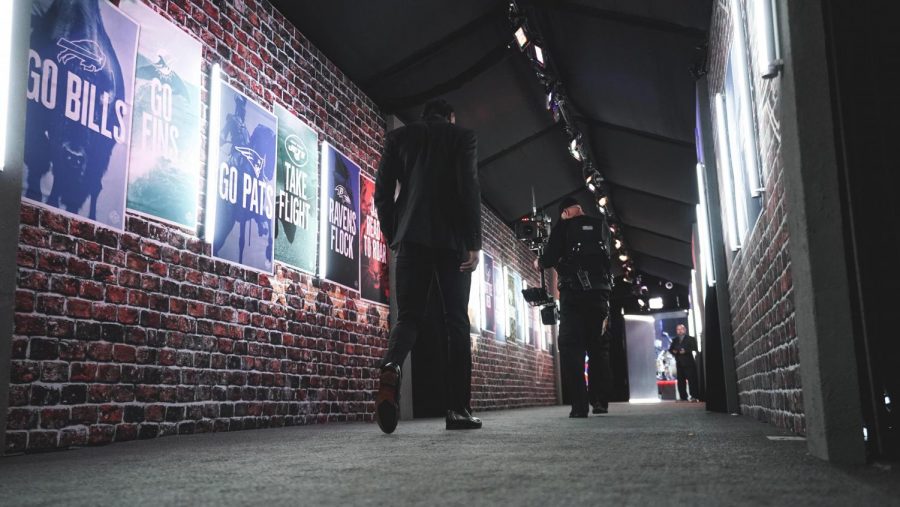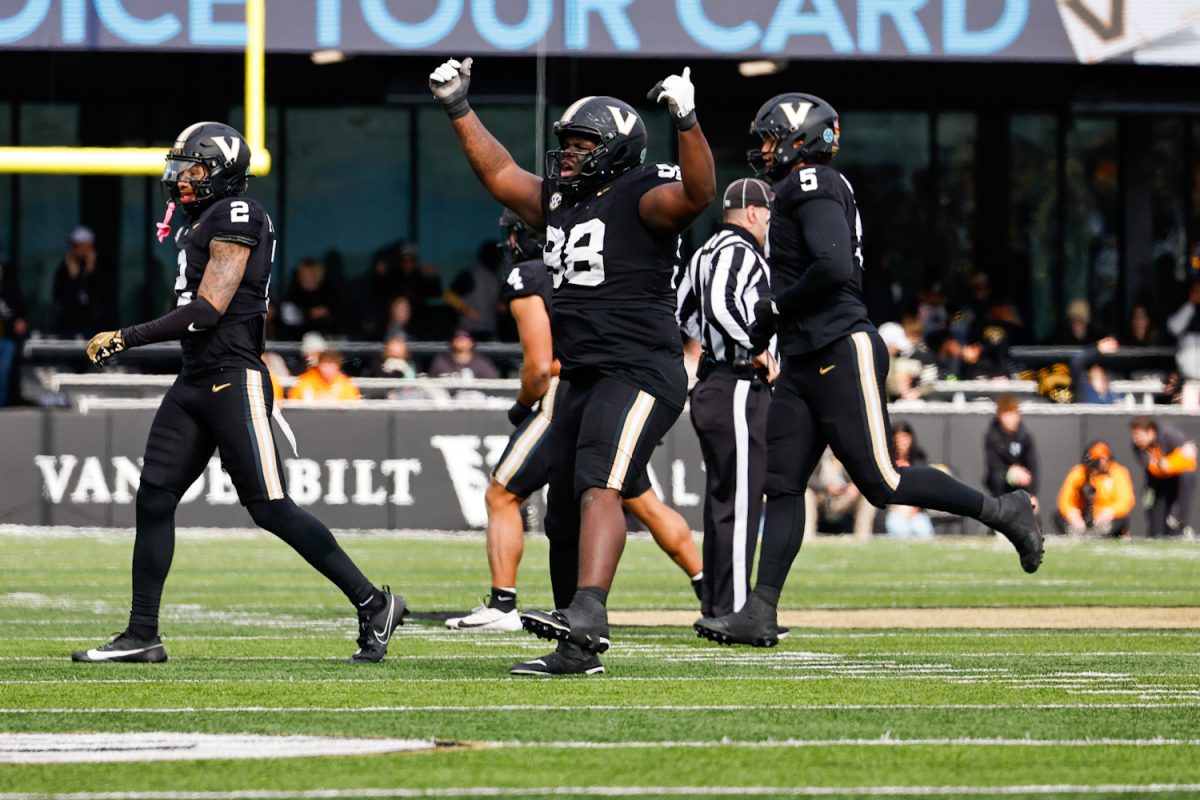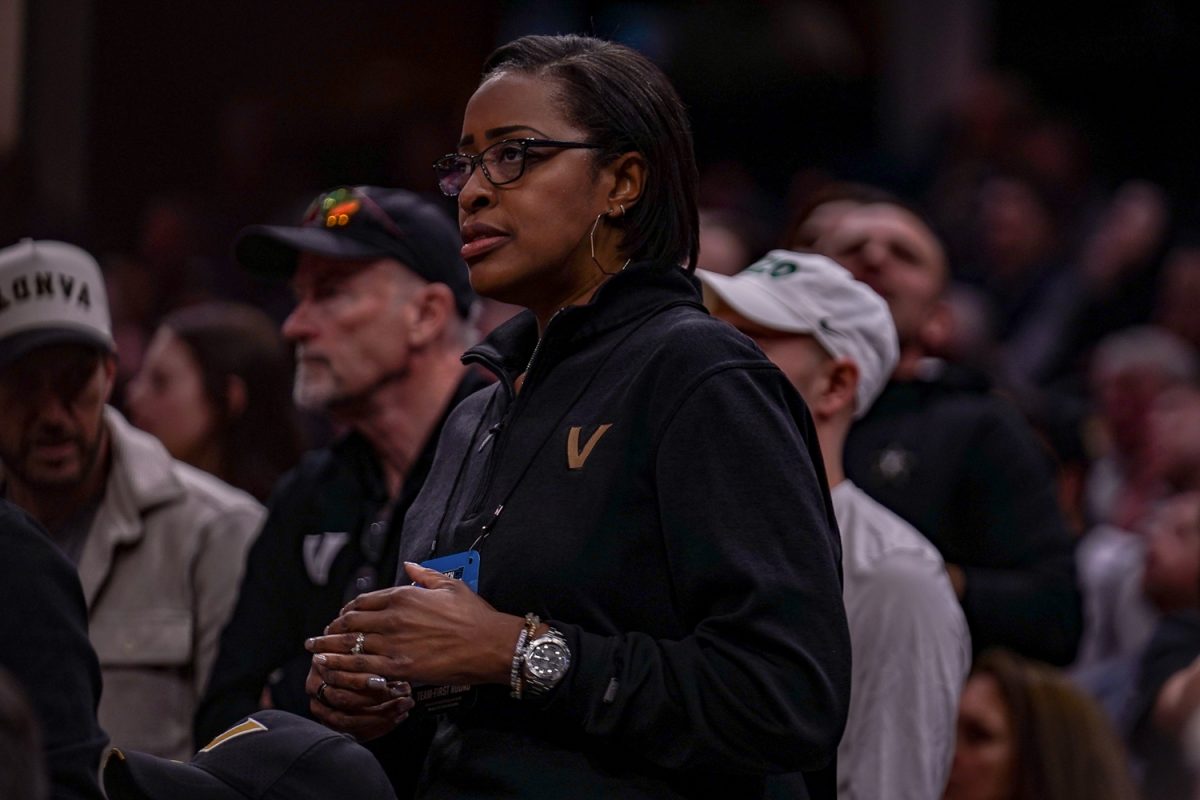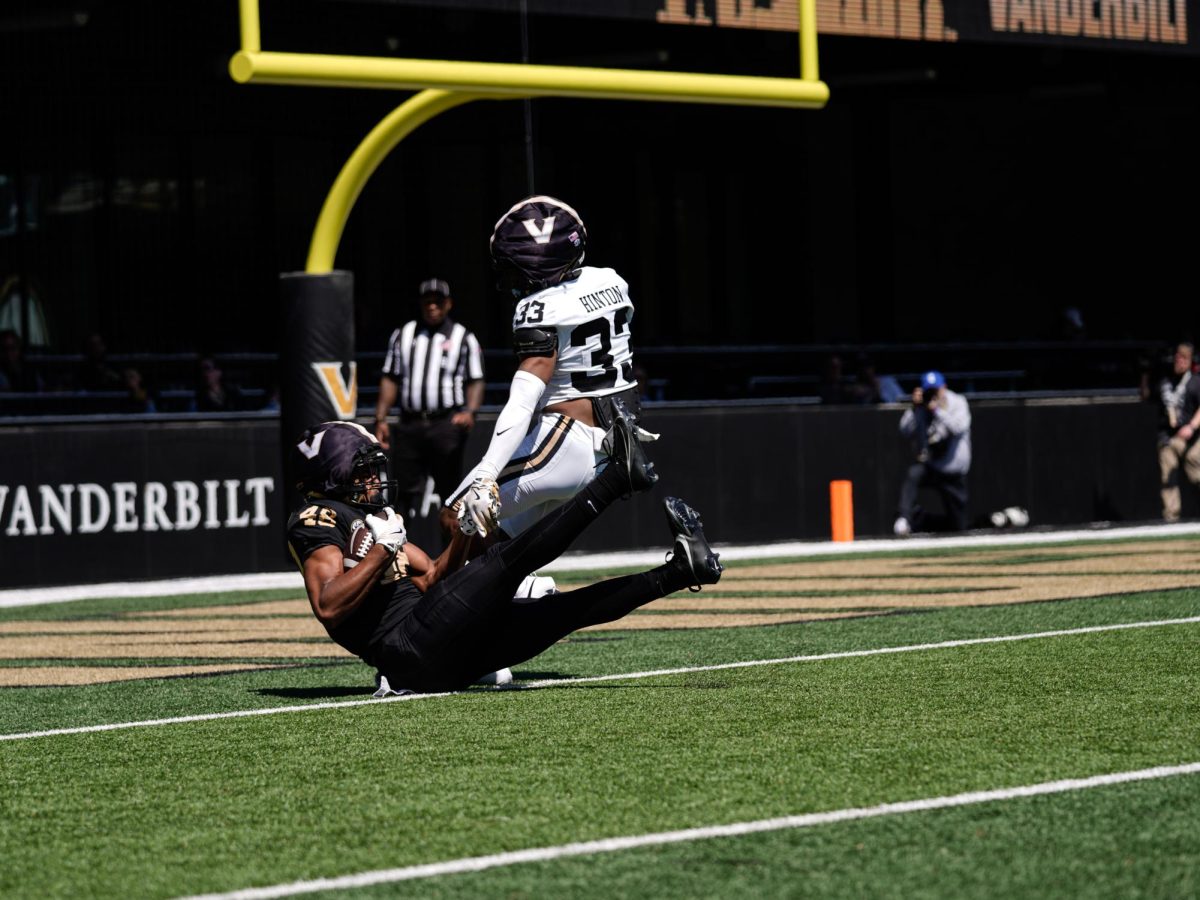“In one word, to sum it up, it was defining,” Bruno Reagan recalled. “It was a character-defining moment.”
Reagan, 24, freely admits that he wasn’t eager to compete as a member of the St. Louis Battlehawks, one of the eight inaugural teams of the re-launched XFL alternative football league. But after exhausting his collegiate eligibility at Vanderbilt as a mainstay on the Commodores’ offensive line from 2015 to 2018, then going undrafted at the 2019 NFL Draft, Reagan’s professional football aspirations—and his morale—had all but bottomed out.
“That was [my] worst case scenario,” Reagan told The Hustler. “I’ve had the privilege of living a very blessed life, so when your worst day of your life is the NFL Draft, you’re not living a bad life. There’s a little bit of perspective there.”
“But I, as a competitor—I like to think I was a high-level competitor—it was brutal. That was a big blow. I did my best to hide it, but it was a lot to overcome, because then I had that mental block, even for the slightest bit, where it was like, ‘I guess I’m not cut out for this.’”
Reagan’s draft experience was a bumpy one. The 6’3” offensive guard was in talks with the Indianapolis Colts, who expressed their interest in selecting him with their second seventh-round pick.
“The Colts offered me a contract,” Reagan said. “They were talking me up, all, ‘We’re going to use our quote-unquote 7th round pick on you. We’re just going to sign you.’…Then I’m watching the TV, and they draft a [different] center.”
Reagan found himself in a difficult position. A largely unheralded recruit during his high school days, where he split his time between wrestling, his first sporting love, and football, Reagan had fought relentlessly on the gridiron to make it to this point.
Despite ultimately choosing Vanderbilt—“close to home [Clarksville, TN], top tier education, highest level of football”—over the University of South Florida—“Unless you wanted to party, there was no other reason to go to USF”—Reagan initially served as a second- and third-string lineman for the Commodores. Over time, he would emerge as a bastion of stability for his unit, starting forty consecutive games.
Facing doubters and an uphill climb wasn’t unfamiliar to Reagan, but after the Draft, the stakes had never been so high.
“I guess every other center was signed or committed to a team,” recounts Reagan, “and I was just kind of out there. Then I ended up getting mini-camp opportunities with the [Kansas City] Chiefs and [Los Angeles] Chargers, but then after that, I saw the writing on the wall.”
Enter the XFL.
A brainchild of professional wrestling mogul Vince McMahon, the XFL operated for one ill-fated season in 2001. The league, which was promoted with the dramatics of WWE-inspired sports entertainment and boasted a less-restrictive ruleset, aimed to capture the appetite for football felt by fans during the offseasons for NFL and NCAA football. The league, which had failed and faded from the public eye, returned in 2019 in a renewed bid for sporting relevancy.
For Reagan, the XFL wasn’t some new beginning or newly-revealed ambition: it was a last resort to save a quickly fading career in professional football.
“I mean, my goal was the NFL. My goal was never the XFL, so after it was all said and done, I told my agent, ‘I guess we can inquire at the XFL, maybe get a tryout as a backup plan,’” Reagan said. But I wasn’t really interested in it at all. It was just something I basically went and did. I showed up at the [XFL] combine and wasn’t very motivated for it, you know? I was already planning for life after football while the XFL was kinda scouting me out. So, it was a mix of emotions, but at the time, the XFL was starting to get rolling.”
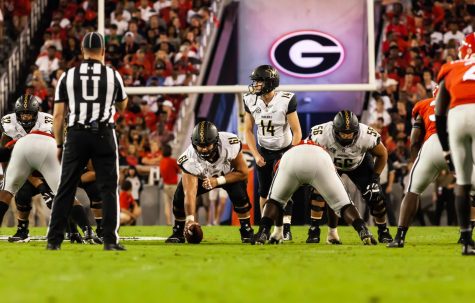
In mid-October 2019, the XFL held their opening draft. Once again, Reagan watched as the names of other players were read before his own.
Reagan paints a less-than-promising scene of his introduction to the league.
“I was drafted either second to last or last out of fifteen [total] lineman, and only seven or eight were gonna make the team… At that point, I was at my lowest. As [far as] a competitive mindset, I was like, ‘Ok, I must really suck.’ There was no other way around it. I told the guy that called me—basically the team’s GM—I said ‘Listen, I’m not coming.’ Like, ‘This is just dumb, I’m done.’”
It should have been the nail in Reagan’s career’s coffin; the Commodore was at his lowest point, and he had just declined his Battlehawks selection.
But then, like Reagan had done so many times before, he refused to quit.
“Then about a month later, I was getting hints of ‘What if I’m good enough to make it?’ What if, what if, what if?’ So I called [the GM] back and basically begged for my spot about a month later, and two weeks after that, I shipped off to mini-camp, and I showed up as the third-string center.”
Still, though, his passion for the sport had burnt out, and his confidence was lacking.
“I lost my ‘give a shit’ meter a long time ago. We went through the O-line, and they were like, ‘Tell me what you’re here for. What’s your Why?’ That was the introduction,” Reagan said.
The room was quiet. Each of the players—like Reagan, high-level athletes with lofty aspirations—shared their motivations for the upcoming season. When it came time for Reagan to speak, he paused.
“I was like, ‘Listen, I don’t have a… I don’t really care about football at this point anymore. Like, I’m here to just explore the opportunity, but I could be making more money doing something somewhere else. I’m here to just push myself,’” Reagan recalls telling the team.
“That’s all I told the guys, and they were like, ‘What the fuck is wrong with this guy?’”
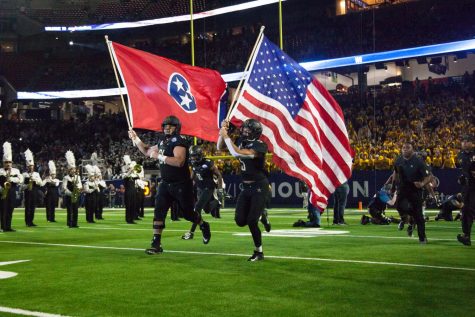
A “Character-Defining” Season
Over the next several months, Reagan found himself again. The on-field leader quickly regained his passion for the sport—and for winning—on the practice field alongside his Battlehawks teammates.
“When it comes to competing, all that mental stuff went out the window,” Reagan said. “When we stepped on the field, it was the most liberating thing ever. Just getting to put the helmet back on. And I locked in like I never locked in before; I was trying to earn that spot. And by two weeks in, I was already the starting center or guard.”
The Battlehawks, whose attendance numbers in St. Louis were so strong that city officials expanded their stadium capacity, began their season with a promising 3-2 record that placed them squarely in second place in their divisional standings.
Reagan was one of the team’s top performers.
He was on the field for more plays than any other Battlehawk and put forth a rock-solid effort on the team’s offensive line. Reagan held opposing defenders to just a 1.7 percent quarterback pressure allowed from his position, the best percentage on the Battlehawks and eighth among the league’s offensive linemen.
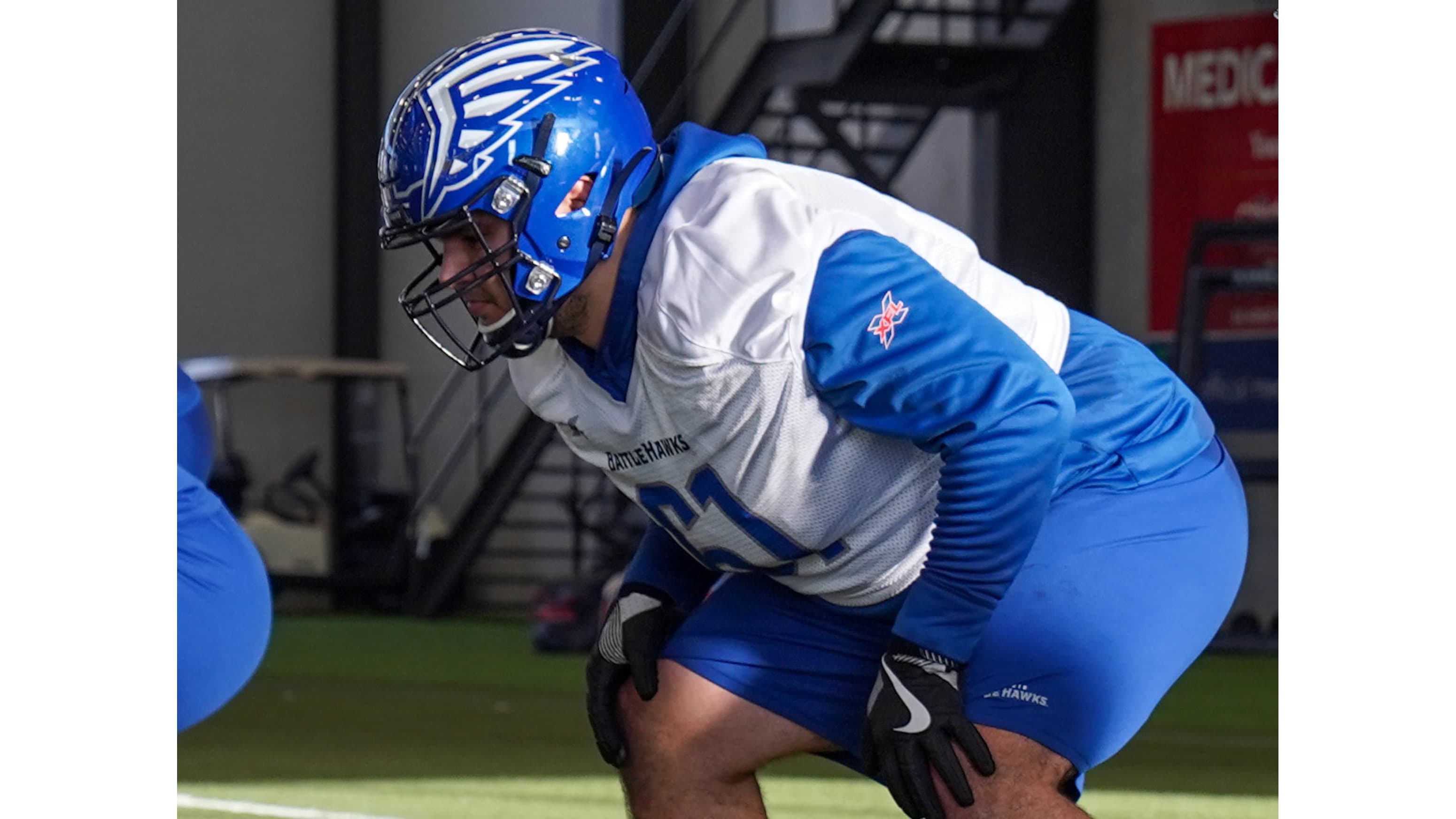
Just as things had finally begun to click for Reagan, misfortune struck again. Just five games into the XFL’s restart, the ongoing COVID-19 pandemic made its presence felt across the country and the globe.
With concerns over containing the virus and protecting the players and league personnel, the XFL cut its season short indefinitely.
“It crashed fast,” Reagan remembers. “We thought we were going to get two weeks off and then come back and everything would be good as new. Obviously, that was nowhere near the case.”
The XFL’s indefinite postponement turned into a permanent cancelation, with the league filing for bankruptcy just months after its official relaunch. The XFL, in a statement issued at the time, cited “the harsh economic impacts and uncertainties caused by the COVID-19 crisis.”
For Reagan, it was the worst luck imaginable. Just when he thought he had found stability, it was gone with the snap of a finger.
“But that’s just life,” Reagan says. “You gotta be prepared for these moments and be able to respond, so that’s what we’re doing now. [The XFL is] coming back, allegedly. I haven’t heard much about it, but that’s where we’re at.”
Reagan is referring to the league’s recent acquisition by former professional wrestler and action movie star Dwanye “The Rock” Johnson, who, along with investors, purchased the league for $15 million after its April bankruptcy declaration.
Reagan hasn’t heard anything about the status of the league, its teams or his future with the league, but he thinks the XFL’s new owners should keep things as they were, once play resumes.
“The product they had was working. It was a super successful product in a market that said it can’t be done. They filed for bankruptcy, but they did it. They were successful, and you can’t really argue it any other way.”
So close to career stability, only to have it ripped away, Reagan simply wants closure.
“What I look forward to most? All I want is a date. Just give me a date, some closure on the whole situation. Because the past whole year of my life has been…” Reagan pauses. “Football has been there. Football is in the clouds: I know it’s there, but I can’t reach it, and then it kinda starts raining on me, and then I’m in the XFL season. That’s kinda the life of being a pro athlete: you have to be extremely fluid in your life and have to be ready to pack up and go on a week’s notice.”
And rest assured, Reagan is ready.
“When XFL information comes out, dates start coming out, [and] names start coming out, I’ll be looking forward to that,” Reagan said. “I’m just hopeful to get to the conclusion of it all and then I can make my decision if I’ll go back or not.”
Fighting off of the Field
While football has been an up-and-down pursuit for Reagan, who dismissed youth football as “worthless,” played in the lauded SEC, went undrafted in the NFL Draft and dominated in the second iteration of the XFL, one passion of his that has remained constant is his love of martial arts.
And, as Reagan will tell you, martial arts have always come first.
“I have no problem saying that I prefer combatives over football,” said Reagan. “In my personal sense, because I’ve always loved the one-on-one, the ‘men in the arena’ style of fighting, thinking, moving.”
Reagan, who began training in judo at three years old and wrestled throughout high school, points to the individualism of martial arts, in which one is solely responsible for one’s successes and failures, as a defining feature in his personal development.
“It’s no one else’s fault… part of the most frustrating thing about football is [when it’s] someone else’s,” Regan said.“I hated that part about football. I hated not being able to control my own destiny. That’s [not] something in judo, [Brazilian jiu jitsu], [mixed martial arts]. It’s you vs the other guy. There’s no one to blame but yourself. I love that accountability. I carry that to the team sports. There’s a clash of mindset sometimes, but it definitely helped shape the competitive spirit that I have, and I did take that to football.”
Along with the accountability and competitive drive from martial arts, Reagan also brought the fundamental principles of leverage-based fighting styles like judo and wrestling to the football field.
“I couldn’t just take my judo and wrestling background and become a great football player. It took a lot of football work, but the key components like balance and leverage are there,” Reagan said. There was a building block there that people, that coaches, could build upon, so there was a good base for it. It translated well under the right coaching, and a lot of my coaches were former wrestlers or loved wrestlers, so they were able to work with the toolset that I brought.”
Reagan has continued to practice martial arts during his collegiate and pro football career, and now holds the rank of black belt in judo and a blue belt in his newest discipline, Brazilian jiu-jitsu.
Over his martial arts career, Reagan has achieved a wide array of distinctions in different disciplines. Reagan has earned gold medals at a litany of national and international judo events, was one of just two American judokas to reach the ‘Round of Eight’ at the 2011 Cadet Judo World Championship, was an All-American wrestler in high school and notched two undefeated seasons as a wrestler under the Tennessee Secondary School Athletic Association (TSSAA).
Reagan is also the owner of Reagan Martial Arts in his native Clarksville, which he owns and operates alongside his father Mackel, a fellow judo black belt and decorated instructor. The gym held its first classes in September after it was set in motion by Reagan in 2018. Especially when his football career was in jeopardy, Reagan lauds the dojo’s stability and success as an “act of God.”
“I came back home, and I thought football was over,” Reagan explains. “‘Well, I want to train judo now. I want to compete in judo.’ And it was like, ‘Well, there are no judo clubs around here, and I’m probably the best practitioner within 500 miles in any direction, so open up a club, and that was the next step,”
“And some act of God or whatever happened, I have no idea,” he continued. “We just walked into this perfect building for exactly what we needed. I mean, it was a nightmare at first. I was 23 years old, no idea in running a business or doing anything like that, but I was very determined to figure it out on the way. And I was doing this while training for football full time so I was driving about 120/150 miles a day to train in football in Murfreesboro, then come back to Clarksville to run the club.
“But it’s all life-shaping things: I learned a lot from it, I grew a lot from it, and now the club’s in a really good place. I’m really comfortable with owning and operating it now, so much so that I was able to go to the XFL and let it totally operate itself. I was able to do it remotely, most of the logistical stuff, and then come back and hit the ground running,” Reagan said.
During the height of the coronavirus outbreak in the U.S., Reagan was forced to close the dojo’s doors. Luckily, he says, the business was able to navigate the uneasy financial situation and work through any local or state restrictions brought about by COVID-19 concerns. Reagan doesn’t foresee any future complications, either.
His gym is now thriving, says Reagan. He and several of the gym’s members are preparing to compete in a variety of local and regional tournaments, including some of the most prestigious in their sports.
“Right now, I have a series of tournaments lined up, and I’m going to the [highly-regarded International Brazilian Jiu-Jitsu Federation] IBJJF Open for jiu-jitsu in about three weeks from now and then I go to [IBJJF Pan-American Championships] Pan Ams for jiu-jitsu a week after that, and then about a month after that is when judo Senior Nationals will be for USA Judo so I’ll go to that,” Reagan rattled off, naming some of the most established martial arts tournaments with the sort of off-handedness that only comes with a life of training and competition experience.
“I’ll probably stop my fall tour and focus on the academy. Having Pan Ams for BJJ and Senior Nationals for jiu-jitsu back-to-back is a good way to see where I’m at and gauge my current standing,” Reagan said, who will compete as an ultra-heavyweight in his rank-specific divisions.
Reagan Martial Arts recently partnered with Shawn Hammonds, a respected black belt in both jiu-jitsu and judo who owns a variety of affiliates in the Nashville area. By aligning with Hammonds, Reagan Martial Arts has increased its reach and brought a reputable, local martial arts instructor into the fold.
With his dojo flourishing and his competitive martial arts future beckoning, Reagan finds himself sitting pretty, waiting for a call from the XFL.


